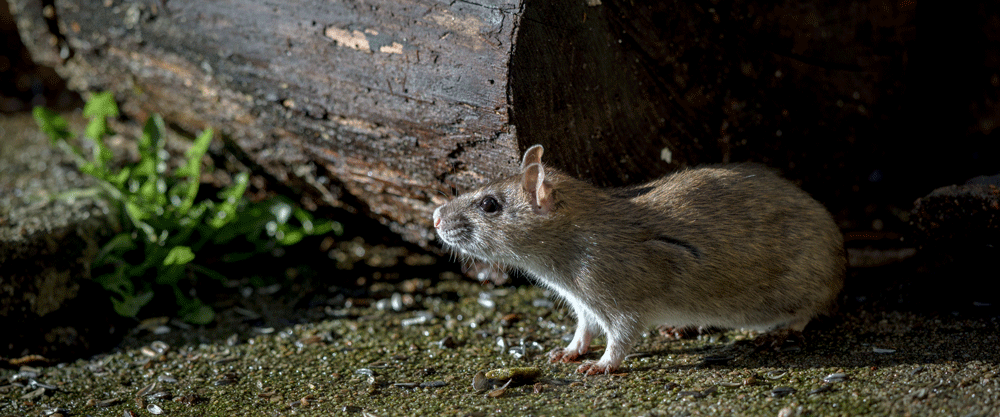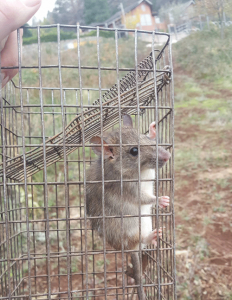What to do if a mouse is not scared of people, acting strange or is aggressive?

In the event that you’ve come across a pesky mouse—whether it’s your pet or a nervy pest—behaving in an unusual manner, it may be trickier to get a hold of it. Here’s what you can do to take care of that problem.
Consider How Mice Are Handled
According to researchers at Charles River Laboratories, handling mice by using transfer items mitigates their aggression. Rather than grabbing the mice by the tail or scruff, consider using transfer items such as tubes or cups to handle them. Transfer items can ease the fight-or-flight response and reduce anxiety in mice by serving as a shelter where the mice will feel safe. Most mice will willingly enter a tube as they seek a place for refuge. Instructions to transport mice using a tube or cup is as follows:
- Place tube or cup near the mouse and guide the mouse if necessary
- When the mouse is inside, gently cover any open ends of the transfer item
- Transport the mouse to the new desired setting
- Gently tip the tube or cup upward to encourage the mouse to exit
In case transfer items are not available or at hand, there are other ways in which the mouse may be handled better. Scooping mice with a “cupped” hand is an effective way of holding them, safely for both you and the animals. Through experimental research completed at The Jackson Laboratory, it was found that “mice that were caught and handled by ‘cupping’ generally scored lower in anxiety tests and were more willing to interact voluntarily with the handler” than mice picked up by their tails. The mouse you are dealing with may have aggression that stems from fear of humans, so it must be acclimated to human interaction by positive experiences. These positive experiences can occur from gentler handling methods.

Control Scents in the Mouse’s Environment
Unlike humans, who attain most information through a sense of sight and hearing, mice mainly rely on their sense of smell. A mouse can easily feel threatened when it senses a foreign scent that suggests a possible predator or opponent. In a research study done by Jane Hurst, professor of Animal Science at the University of Liverpool, mice were found to act more aggressively when placed in a cage that has traces of urine of another mouse. This is because mice use urine as a means of marking their territory. So, when faced with the territory owners scent, they are more likely to challenge the owner for dominance, thus behaving with more aggression. Likewise, mice will act combatively when encountering other scents. Components of fur or urine from a cat or other predator cause similar response in mice as they experience a surge of stress hormones in the bloodstream. These stress hormones serve as a reason for their belligerent behavior. In dealing with a more hostile mouse, you may find success in handling its aggression by cleaning its current dwelling area and/or new dwelling area of any potentially triggering scents. Or, even introducing the mouse to a more calming scent. A study done by a team of researchers at Kagoshima University in Japan suggests that lavender alleviates stress in mice. After exposure to the odor, the test-subject mice exhibited similar behaviors to other mice who were solely injected with benzodiazepines, a drug classification for common anti-anxiety medications. When it comes to soothing down your aggressive mouse, try putting some cotton balls holding a few drops of lavender oil in their range to expose them to the calming scent.
